
Debunking 5 Low-Carb Diet Myths

Most seasoned bodybuilders know the benefits of low-carb diets and, more important, how to properly go low carb, but the newer generation of lifters might need a little help.
Here, we set the record straight, debunking six common myths associated with low-carb dieting.
1 of 6
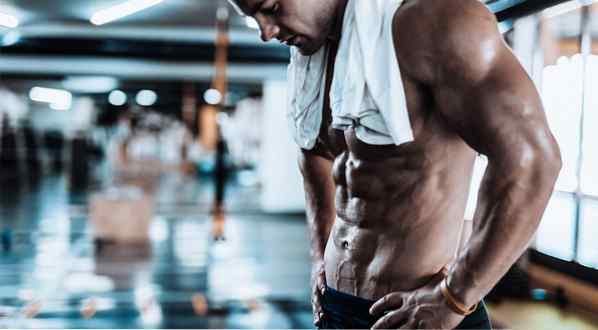
milan2099 / Getty
Myth #1: Cutting Carbs Causes You to Lose Muscle Mass
Truth
At the very beginning of a low-carb diet, glycogen stored in muscles becomes depleted. Glycogen pulls water into muscle fibers, and when it disappears, water levels within the muscle drop. This causes the muscle to temporarily lose size.
This temporary drop in muscle water and fullness causes many guys to abandon their low-carb diets because they think the effect is permanent. However, after a few days, the body adjusts to the decreased carb intake, creates and stores glycogen from other sources, and the muscles refill with water.
Low-carb, high-protein diets do not cause you to lose muscle, and they can actually help you gain muscle while you lose bodyfat. This is due to two factors: the increase in dietary protein intake and the increase in the burning of fat for fuel. When you drop carbs, you should up protein consumption to at least 1 1⁄2-2 grams per pound of bodyweight per day. Research shows that protein intake drives the muscle-building process, which is known as protein synthesis; the more protein you ingest, the more protein synthesis that occurs and the greater the potential for muscle growth.
Meanwhile, ketones, which are produced when you burn major amounts of bodyfat, are used by the body for fuel to prevent the breakdown of muscle protein. With that decrease in muscle breakdown due to ketones and an increase in muscle buildup from higher protein intake, you have a perfect recipe for stimulating muscle growth. In fact, a study performed at the Storrs campus of the University of Connecticut found that men on a low-carb, high-protein diet gained muscle mass without even exercising. When you couple a low-carb, high-protein diet with a solid training program, you'll be amazed at how much fat you can lose while maintaining, if not gaining muscle.
Take Home Message
Increase protein consumption to a minimum of 1 1⁄2 g per pound of bodyweight per day when going low carb. Choose animal protein sources, such as beef, poultry, fish, eggs and dairy, as well as whey and casein protein powders.
2 of 6

svetikd / Getty
Myth #2: Low-Carb Diets Zap Your Energy and Make You Weak
Truth
This myth persists mainly because research on low-carb diets followed by endurance athletes concluded that lower carb intake negatively impacted endurance.
However, bodybuilders and other strength athletes are much different than endurance athletes because of the energy systems used during training.
Endurance athletes burn a lot of muscle glycogen, but bodybuilders typically use other fuel sources, such as stored adenosine triphosphate - the major energy source for many cellular functions in the body - and creatine phosphate (the form of creatine that helps make ATP for the muscle). Unless you train with very high reps (more than 15 per set) or excessive sets (more than 20 per muscle group), low-carb diets will not affect your strength or energy in the gym. A study from California State University, Fullerton, reported that a low-carb diet had no effect on subjects' 15-rep max strength for the squat, leg press and leg extension.
Regardless of the study, if you typically eat a lot of carbs and then switch to a low-carb diet, you may feel a dip in energy at the very beginning; however, after several days, the body will adapt and energy will not be a problem.
Take Home Message
When training while on a low-carb diet, keep reps to 15 or less per set and total sets per muscle group to 20 or less. Also, consider supplementing with creatine (if you don't already), as this will maximize creatine phosphate levels to keep your strength and energy levels maxed in the gym.
3 of 6
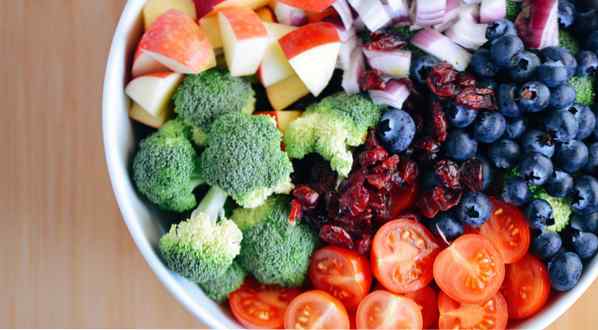
Wanwisa Hernandez / EyeEm / Getty
Myth #3: Going Low Carb Means You Have to Avoid All Carbs
Truth:
Some diets are extreme when it comes to avoiding all carbohydrates. Yet for bodybuilders, “low carb” actually means eating about 1g of carbs per pound of bodyweight per day; for a 200-pound guy, that's about 200g of carbs per day.
That doesn't mean you should eat all kinds of carbs at any time of day. There are three rules: avoid carbs at night; eat most of your carbs earlier in the day; and eat about 60g of carbs after workouts. Go with slow-digesting carbs most of the time, including fruit, oatmeal, whole-grain products, sweet potatoes and fibrous vegetables. After workouts, however, consume fast-digesting carbs, such as white bread, white potatoes, dextrose, sucrose or a sports drink like Gatorade.
Take Home Message:
Eat just under 1g of carbs per pound of bodyweight per day. Every two weeks, go extremely low carb for three days to deplete your muscle glycogen levels and further boost fat burning. During those three days, drop carbs to less than 100g per day and eliminate post-workout carbs.
4 of 6
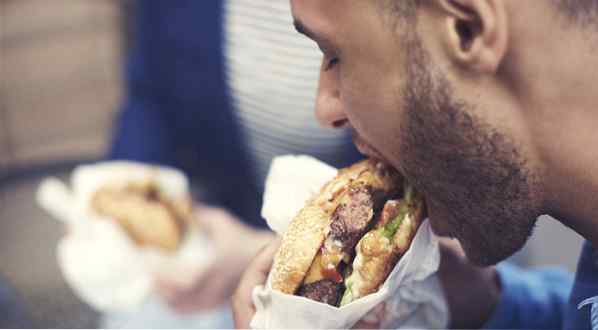
Anna Bizon / Getty
Myth #4: Low-Carb Diets Will Make You Feel Hungrier Than Normal
Truth:
Carbs are not what satiate you and make you feel full. Following a high-protein diet will actually help you feel less hungry, because it's protein that makes you feel the most satiated. In fact, a recent study from University College London (England) reported that a high-protein meal (65% protein) reduced hunger by up to three times more than high-carb and high-fat meals. It seems high-protein meals cause a greater release of peptide YY. This hormone, produced in the gut, signals the brain that you are full. By keeping every meal high in protein, you will keep hunger pangs at bay.
Take Home Message:
Shoot for about 40g of protein for most meals, with the exception of pre-workout, when you'll need only about 20g. Eating high-protein meals every two to three hours each day will ensure that you never get hungry, regardless of how low your calories drop.
5 of 6
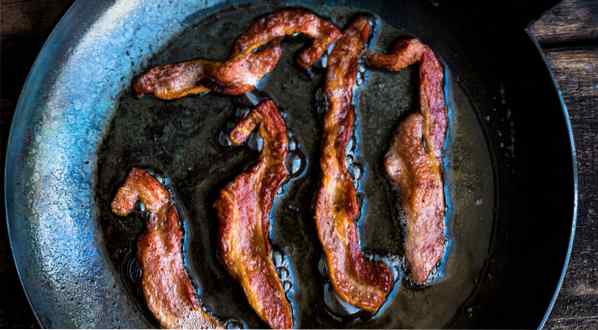
Hein Van Tonder / EyeEm / Getty
Myth #5: Going Low Carb Means You Can Eat Bacon and Other Fatty Foods
Truth:
Although some of the more mainstream low-carb diets like Atkins allow people to eat tons of fatty foods, such as bacon, sausage, butter, etc., bodybuilders should avoid these foods for the most part, even when going low carb. The mainstream low-carb diets include such fatty foods so that regular guys can follow the diet and not feel like they are, well, dieting.
You can certainly enjoy bacon and mayo from time to time on a low-carb diet, but your best bet is to eat fairly low-fat foods and choose more healthy fats. Fat is important and will help keep up your testosterone levels. Although eating fatty foods won't make you fat while you're on a low-carb diet, keeping your fat intake moderate will help you burn even more bodyfat.
Take Home Message:
Keep fat intake to about 30-40 percent of total daily calories. Choose from whole eggs, beef, salmon and other fatty fish, avocados, and peanut butter.
6 of 6
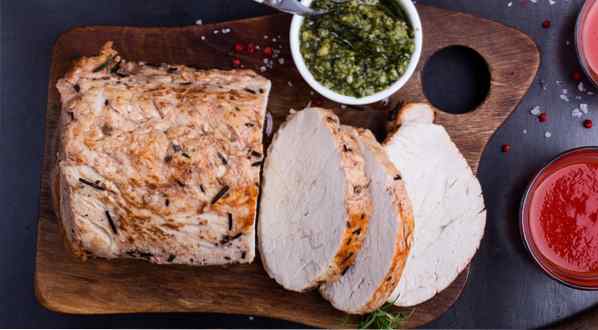
istetiana / Getty
Myth#6: Extra Dietary Fat While on a Low-Carb Diet is Unhealthy and Raises Cholesterol Levels
Truth:
Saturated fat has been America's enemy for many years. Yet, for bodybuilders, it is actually necessary to consume some saturated fat. Athletic research shows that those who consume more saturated fat have higher testosterone levels. Data also supports the concept that eating higher total and saturated fat is not detrimental to health, especially when calories aren't in excess. In fact, studies indicate that the major saturated fat found in beef, chicken and pork does not raise LDL cholesterol (the bad cholesterol). Research further shows that replacing carbs with any type of fat results in decreased blood triglyceride levels and increased HDL cholesterol (the good cholesterol). Compared to unsaturated fat, the saturated kind boosts HDL more.
Take Home Message:
When going low carb, keep fat to about 30 to 40 percent of total daily calories and include a variety of healthy unsaturated fats and saturated fats, such as those from beef, dairy, pork, lamb and duck.



Zatím žádné komentáře